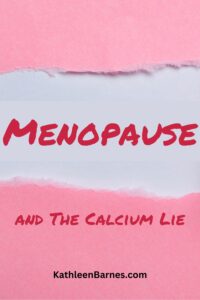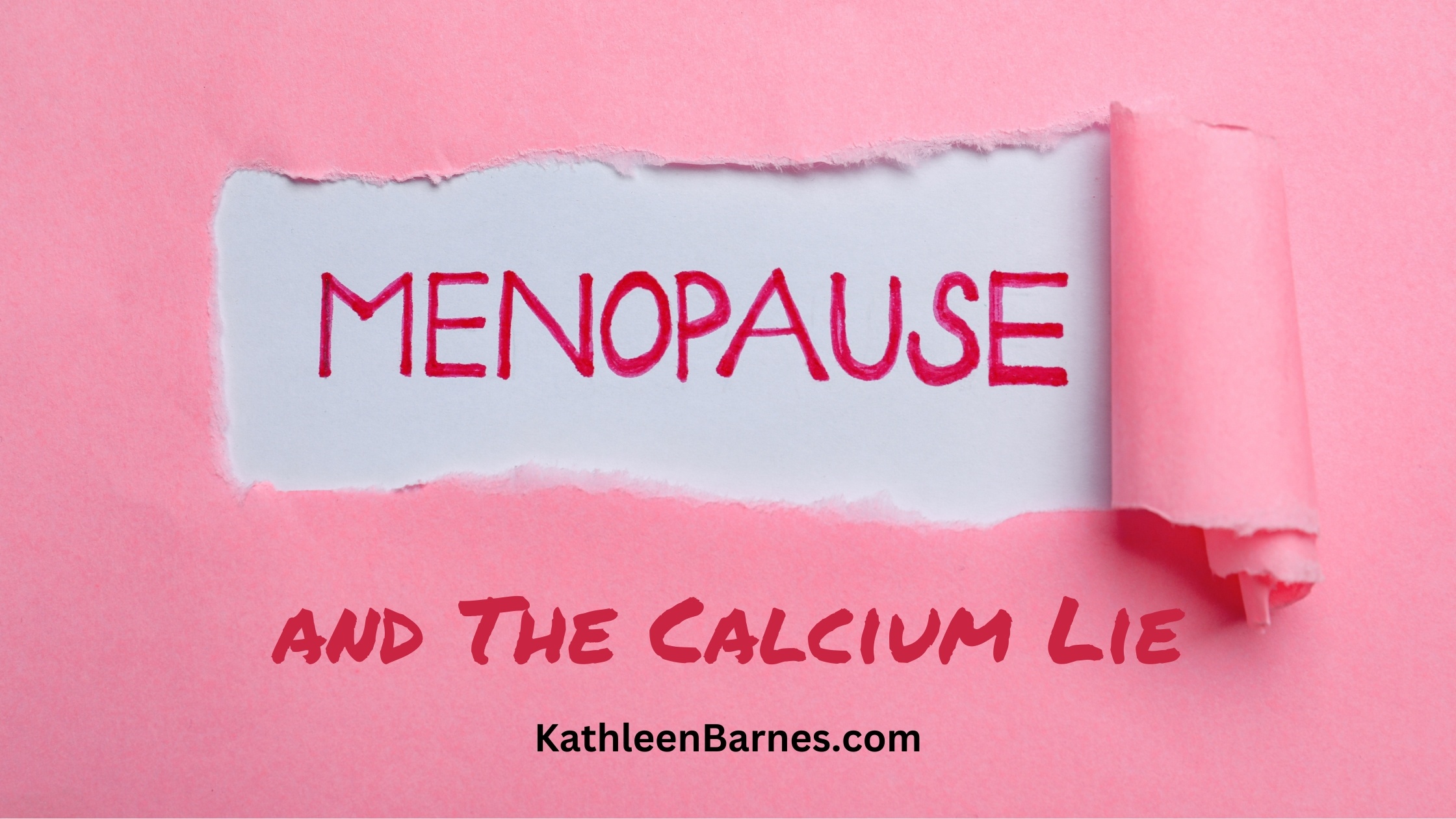 This is an excerpt from The Calcium Lie: What Your Doctor Still Doesn’t Know by Dr. Robert Thompson and Kathleen Barnes.
This is an excerpt from The Calcium Lie: What Your Doctor Still Doesn’t Know by Dr. Robert Thompson and Kathleen Barnes.
The menopause blues can really get a woman down, I know. I’ve been there. Most doctors tell us that hormone imbalances are the cause of hot flashes, depression, weight gain, irritability, insomnia, memory loss, joint pain and other symptoms of perimenopause, the time before a complete cessation of menstruation.
But think about this: Mineral imbalances, particularly excess calcium, may be equal contributors to the woes of menopausal and perimenopausal women.
I know. These are considered heretical statements by most conventional doctors, who have been overinfluenced by the pharmaceutical industry and who have forgotten the basic biochemistry they studied in medical school. In our book, The Calcium Lie: What Your Doctor Still Doesn’t Know, Dr. Robert Thompson and I wrote about the far-reaching effects of mineral imbalances, including their effects on women’s hormones.
It’s estimated that at least 40% of perimenopausal women have low thyroid function. Based on Dr. Thompson’s 13 years of clinical experience with mineral imbalances, it appears that about 90% of our population has some degree of hypothyroidism. Interestingly, many of the symptoms of low thyroid function (hypothyroidism) are the same as the menopausal symptoms I’ve already noted.
Science tells us that estrogen and progesterone, the major female hormones, lose their effectiveness when there is a zinc-copper imbalance, which frequently occurs in the vast majority of us who have excess calcium in our tissues.
In fact, hormones need minerals to do their work, so when minerals are missing, unbalanced or overly abundant, hormones will also be out of whack.
Additionally, thyroid hormones need the correct levels of potassium in the cells to work. Too much calcium depletes potassium and creates type 2 hypothyroidism or thyroid hormone resistance (one of six types of hypothyroidism Dr. Thompson has discovered and documented).
To make a long story short, getting a full complement of the 70-plus essential minerals will also help relieve the symptoms of low thyroid function and menopause.
The easiest way to do this is to use unrefined sea salt, which contains all of the essential minerals in exactly the right balance (except sodium) and/or to begin taking trace minerals (which have most all of the sodium removed, leaving all the other needed minerals) to replace what you have lost over a lifetime.
I also use a daily liquid trace mineral supplement just to be sure I am getting enough of the right minerals in the right proportions. I urge you do to so, too.
You’ll get the whole story in book The Calcium Lie: What Your Doctor Still Doesn’t Know (Take Charge Books 2013).There are excerpts and lots of info on our website, www.calciumlie.com.
For more articles from Kathleen on supplements, click here.







